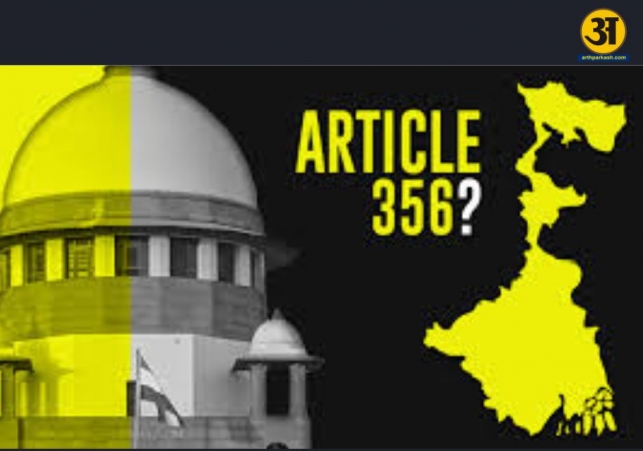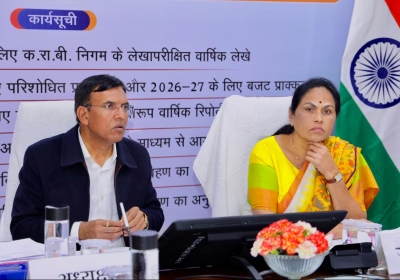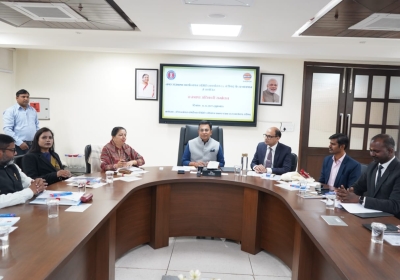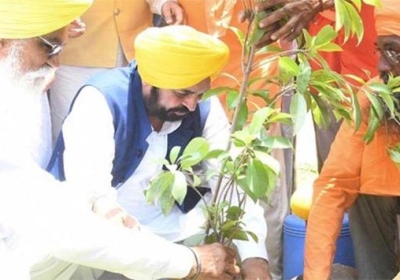
SC to hear plea on President’s rule in Bengal, notes overreach concerns
Supreme Court to hear plea seeking President’s rule in Bengal, acknowledges concerns over judicial overreach
- By Gurmehar --
- Monday, 21 Apr, 2025
The Supreme Court has agreed to hear a plea requesting the imposition of President’s rule in West Bengal due to the ongoing communal violence in Murshidabad. This plea will be heard on Tuesday, and the petitioners have also called for central forces to be deployed to control the situation. The case has attracted significant attention, with the court also addressing criticism about its recent judgments and perceived overreach into legislative matters.
Request for President’s Rule and violence concerns
The petitioners, Devdutta Maji and Mani Munjal, both residents of West Bengal, are seeking the imposition of President’s Rule in the state, alleging that Hindus have been attacked following protests over a new law that regulates Waqf (Islamic charitable endowments). These protests were sparked by concerns about the law and resulted in violence, particularly in Murshidabad, where the petitioners claim that Hindus were targeted.
The petition has gained attention because it highlights the violence that allegedly took place between 2022 and April 2025. Maji and Munjal have pointed to incidents during Ram Navami on April 6 in Kolkata, stone-throwing during a Holi celebration in Birbhum, and other violent acts as evidence of religious unrest in the state. The plea also draws attention to ongoing issues in Sandeshkhali, where allegations of sexual assault and land grabbing by local Trinamool Congress (TMC) leader Shahjahan Sheikh have been reported.
The petitioners want a formal inquiry into the violence, proposing that a three-member committee led by a former Supreme Court judge be formed to investigate the events. They have also requested that central forces be deployed to help control the unrest and to ensure that the state government protects the life, liberty, and dignity of its citizens.
Advocate Vishnu Shankar Jain, who is representing the petitioners, asked the Supreme Court to hear this plea alongside other pending petitions regarding the President’s rule in West Bengal due to violence following the 2021 assembly elections. The Supreme Court bench, which included justices Bhushan R Gavai and AG Masih, questioned the plea’s request, expressing concern about the court being accused of interfering in the functions of the legislature and executive. The bench noted that the court had been criticized for overstepping its role in recent rulings.
The remarks came in the context of Vice President Jagdeep Dhankar's comments, where he criticized the court's decision in the April 8 ruling, which set a timeline of three months for the Presidential assent of state bills. Dhankar had described the Supreme Court as a “super Parliament,” calling the powers it used under Article 142 a “nuclear missile” against democratic forces.
The bench’s comment on the plea for President's Rule also reflects the court’s awareness of the broader debate about its role in governance. The court’s jurisdiction over such matters has been controversial, especially when it involves state matters, and the bench’s remarks highlight the sensitive balance between judicial oversight and legislative autonomy.
Despite this, the court agreed to list the petition after Jain emphasized the importance of the matter, particularly given the ongoing violence in the state. Jain also requested the state to submit a report under Article 355 of the Indian Constitution, which obligates the Union government to protect states against external aggression and internal disturbance. This provision is often used to justify the imposition of President’s Rule when a state fails to maintain law and order.
ALSO READ: India rejects Bangladesh official’s remarks on West Bengal communal violence
ALSO READ: Eknath Shinde promises to make Mumbai ‘pothole-free’ ahead of monsoon season
Allegations of violence and political tensions
The petitioners have raised several concerns about the alleged attacks on Hindus in West Bengal. These incidents of violence, they argue, are part of a larger pattern of targeted attacks against the community. They have also pointed to the violent clashes during Ram Navami and other religious festivals as further evidence of the lawlessness in the state. The petition highlights the alleged involvement of local TMC leaders in these violent acts, including Shahjahan Sheikh, who has been accused of land grabbing and sexual assault.
The plea has sparked political debates, with members of the Bharatiya Janata Party (BJP) joining the criticism of the Supreme Court’s recent actions. BJP lawmaker Nishikant Dubey specifically pointed to the court's role in interpreting the Waqf law, accusing the court of inciting religious tensions. However, BJP president JP Nadda distanced the party from Dubey’s remarks, stressing that the BJP respects the judiciary and accepts its orders.
These developments show the deep political divisions in the state, with the ruling TMC and opposition parties at odds over the causes of the violence. The opposition has criticized the state government for failing to maintain law and order, while the TMC argues that the violence is politically motivated and has been exaggerated to undermine the party's position.
The application filed by Maji and Munjal also calls for the Union government to take immediate action under Article 355 of the Indian Constitution. This article outlines the Union's responsibility to ensure that state governments operate according to the Constitution. The petitioners argue that the state government’s failure to control the violence in Murshidabad and other areas justifies the imposition of President’s Rule.
Article 355 allows the central government to take control of a state if it believes that the state is not functioning in accordance with the Constitution, particularly when there is internal disturbance. The petitioners contend that the violence in West Bengal represents a breakdown in law and order, which warrants central intervention.
President’s Rule, which has been imposed in various states in India in the past due to political instability or unrest, would give the central government direct control over the state. This includes the ability to deploy central forces to restore order and ensure the protection of citizens’ rights. The decision to impose President’s Rule requires the approval of the President of India, who acts on the advice of the central government.
Conclusion and the Supreme Court’s role
As the Supreme Court prepares to hear the plea for President’s Rule in West Bengal, the case highlights the ongoing challenges faced by the state in controlling communal violence and maintaining law and order. The petitioners have raised valid concerns about the safety of citizens and the need for central intervention. However, the Supreme Court must carefully consider the constitutional limits of its authority, especially given the criticisms of judicial overreach that have emerged in recent months.
The outcome of the case will have significant implications for the relationship between the judiciary, legislature, and executive in India. It will also send a message about the role of the judiciary in addressing issues of governance, particularly when it comes to state-level unrest and violence.
The court’s decision will likely be closely watched by political leaders, legal experts, and the public, as it could set a precedent for future cases involving President’s Rule and the protection of citizens' rights during times of unrest. As of now, the focus remains on the growing tensions in West Bengal, and the Supreme Court’s involvement in the matter is an important step in determining the state’s future course of action.





